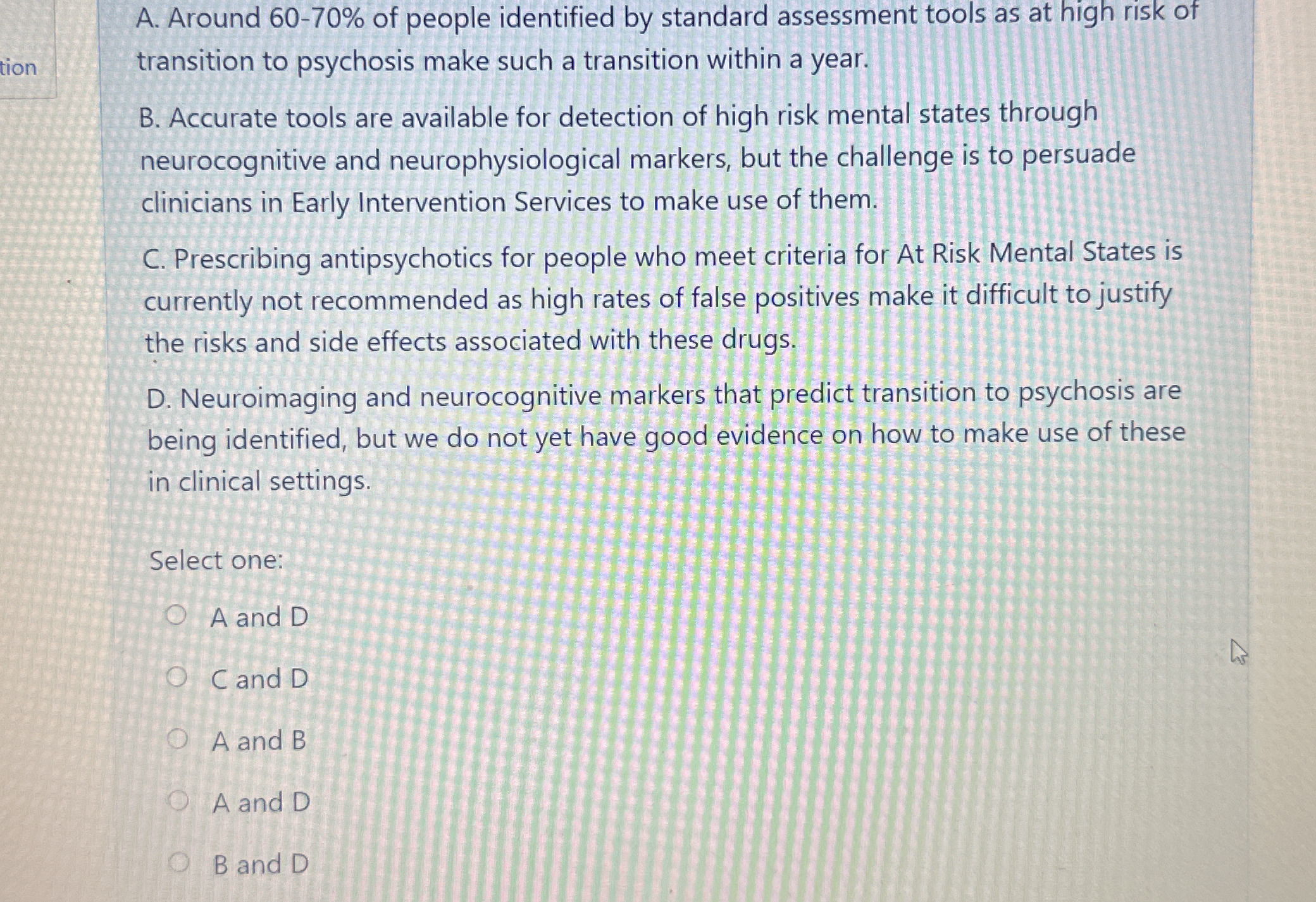Which statements about the transition to psychosis are correct? A. Around 60-70% of people identified by standard assessment tools as at high risk of transition to psychosis make s... Which statements about the transition to psychosis are correct? A. Around 60-70% of people identified by standard assessment tools as at high risk of transition to psychosis make such a transition within a year. B. Accurate tools are available for detection of high risk mental states through neurocognitive and neurophysiological markers, but the challenge is to persuade clinicians in Early Intervention Services to make use of them. C. Prescribing antipsychotics for people who meet criteria for At Risk Mental States is currently not recommended as high rates of false positives make it difficult to justify the risks and side effects associated with these drugs. D. Neuroimaging and neurocognitive markers that predict transition to psychosis are being identified, but we do not yet have good evidence on how to make use of these in clinical settings. Select one: A and D, C and D, A and B, A and D, B and D.

Understand the Problem
The question presents four statements regarding the transition to psychosis and related clinical practices. It asks the user to select the correct options based on the information provided in these statements, likely assessing knowledge on mental health and treatment practices.
Answer
C and D
The final answer is C and D.
Answer for screen readers
The final answer is C and D.
More Information
About 22% of identified high-risk individuals transition to psychosis, not 60-70%. Neuroimaging and neurocognitive markers are emerging, without established clinical application.
Tips
A common mistake is assuming high-risk assessments always lead to high transitions without considering false positives.
Sources
- schizophrenia-cpg.pdf - RANZCP - ranzcp.org
- New Journeys manual 2023 - Washington State Health Care Authority - hca.wa.gov
- Development of Proteomic Prediction Models for Transition to... - jamanetwork.com
AI-generated content may contain errors. Please verify critical information